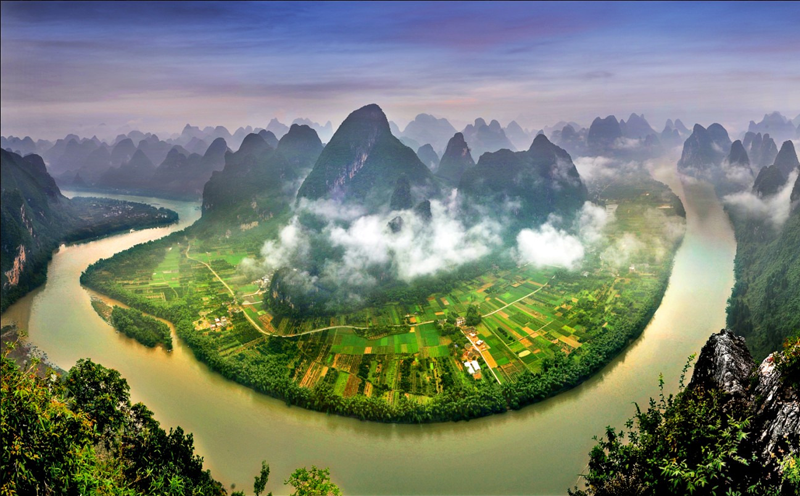Guilin
Proclaimed as the ‘mountain and water paradise’, Guilin is one of the most beautiful cities in China. It’s sandwiched by glorious karst mountains, split in two by the Li River, and paved with pagoda-filled parks. As such, in 1981 Guilin was named one of four cities (the others are Beijing, Suzhou, and Hangzhou) singled out for protection of historical and cultural heritage.
Since then, the city has exploded with tourism, and though somehow a mellow vibe still prevails, there are those veteran travelers who love to lament the days when Guilin had all of its current natural glory minus the crowds. While the lamenters have a point, no one can deny the drop-dead gorgeousness of Guilin. A typical trip to Guilin might include a boat trip down the Li River to Yangshuo, some biking around the Yangshuo countryside and several trips out to the minority villages and rice terraces that dot the countryside to the north.
Head to the far northeast around Sanjiang (三江) for a trip though the Dong minority’s amazing wooden architecture, or to Chengyang (城阳) to catch a glimpse of some of the best Dong bridges and drum towers.
Guilin takes its name – meaning ‘Forest of Sweet Osmanthus’ – due to the large number of fruity-smelling Sweet Osmanthus trees within the area and, like many intriguing parts of China, has a fairly impressive and lengthy history dating back to 300 BC.
Within the space of a hundred years the Qin Dynasty, China’s first dynasty, set up a local government here and then under the Han Dynasty, under the reign of Emperor Wu circa 110 BC, the area essentially was becoming a township. Fast forward 600-odd years to 507 AD and the city was renamed Guizhou. After a prosperous stint under the Tang and Song dynasties, canals were constructed throughout the area to assist its transport network.
Some years later, in 1921, Dr. Sun Yat-sen appointed Guilin his headquarters for the Northern Expeditionary Army. Within two decades the city acquired its present name, and is well-known for the Chinese saying “Guilin's scenery is best among all under heaven”..
